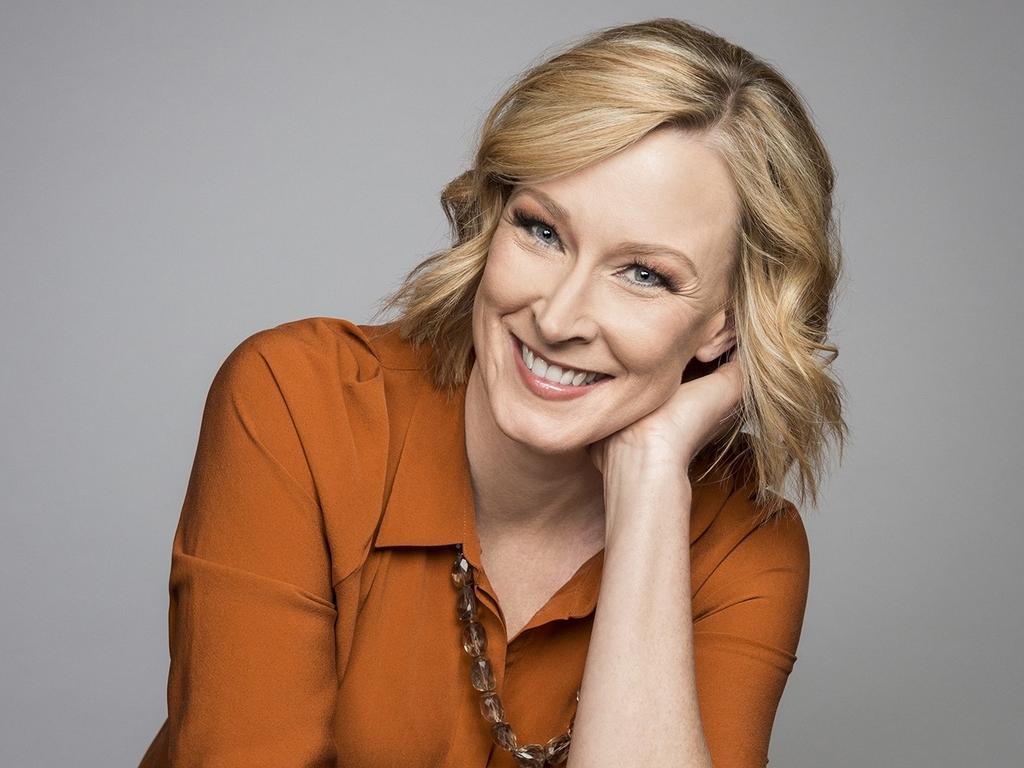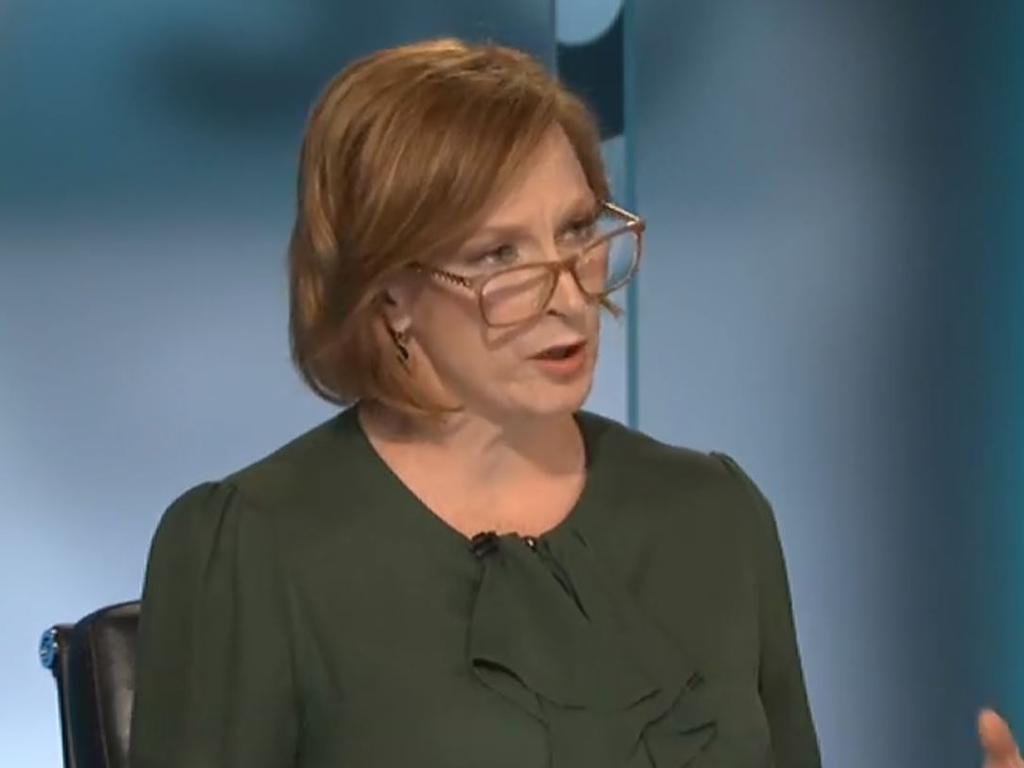When smart debate on issues of the day is a bridge too far


The debates ran on US ABC News during the Republican and Democratic party conventions. Partly caught in the documentary The Best of Enemies, it is riveting watching in 2021. Not only for the feisty and smart sparring about big issues of the day but also because it’s like uncovering a long extinct species. Today, most media platforms that cover politics swing one way or the other.
The idea of bringing together two smart people from opposite ends of the spectrum is anathema to a cookie-cutter business model where you cater to one side only.
I thought of those debates when reading Leigh Sales’s probing analysis of Twitter last week. Sales, a thoughtful journalist, is right to scrutinise the unhinged and blindly political abuse that she and others endure on Twitter.
Sales made two observations worth exploring further. She said the abuse of ABC journalists was overwhelmingly by left-leaning Twitter users. She pointed to a “hardcore mob of bullies” who attacked ABC journalists when they asked tough questions of federal Labor leader Anthony Albanese or Labor premiers Daniel Andrews, Annastacia Palaszczuk and Mark McGowan.
The other cogent point from Sales is that, in a democracy, journalists must ask searching questions. In the context of Covid, “restrictions on citizens’ movements and freedoms should be subject to the most rigorous scrutiny,” she wrote. Sales is right on both scores. She is also right to expect that abusive Twitter users and the company that hosts their vitriol be held to account. But can we delve a little deeper still?
Those Vidal-Buckley debates, where opposing sides to arguments about important ideas are thrashed out between smart people, reminds us of the path not taken by many media platforms.

That raises a question about the consequences of the media going in the other direction. What happens when large swaths of the media offer an ideologically narrow product, targeting an audience who will nod their heads in tedious agreement rather than be exposed to ideas from smart and thoughtful people who may challenge them to think differently.
Don’t get me wrong. TV should be entertaining. But instead of dumbing us down, it could challenge us to be smarter about things that so deeply affect our daily lives.
Let me suggest that parts of the media have aided and abetted the abuse on Twitter. If media platforms dish up a product that blindly swings one way, unable to seriously explore both sides of an argument, be it on climate change or lockdowns or any other big issue, is it any wonder that parts of society become more polarised. That polarisation manifests itself in the kind of crazy and abusive blind politics on Twitter.
The next question is what role has the ABC played in animating the crazy tribal loyalties of some of those people, the #IstandwithDan crowd or the similar sycophants who can’t bear to have hard questions put to McGowan or Palaszczuk?
Sales is a rarity at the ABC. She has probed lockdowns in a way that most of her colleagues have not. If anything, they pushed for harder, longer lockdowns. Their failure to ask basic questions about proportionate responses during Covid surely must be part of the problem if we are fairly exploring why so much abuse on Twitter emanates from the left. The ABC has allowed these left-wing bullies to regard the public broadcaster as theirs, not ours.
If you are used to inhaling only the exhaust fumes from a platform you agree with, it could be painful ingesting something different. Take the ABC’s Q&A. It was surely designed to air competing views on the big issues of the day. Instead, it’s a parody of that, most of the panellists nodding in furious agreement along with the audience. When a conservative person is included on the panel, it’s so obviously a box-ticking exercise or an attempt at cheap blood sport. A modern-day Buckley would not be taken seriously by ABC producers.
For years, Q&A has been uninformative and unintelligent TV. Insomniacs can skip their Temazepam tablets and simply turn on the program for a few minutes to be assured of sleep.
Worse than that, far from bridging divides between Australians, ABC shows such as Q&A have further polarised this country and coarsened public debate. They haven’t just made viewers dumb and dumber, they make them mean and meaner.
Critics will say: what about diversity on Sky News? It’s true that spirited debates between modern-day Vidals and Buckleys would be a terrific addition to Sky News. But in a free country, commercial media groups are entitled to make their own judgments about what viewers want.
The ABC has a legal obligation to reflect the full diversity of our country back to Australians. That’s why taxpayers fund it. It’s not just breaching its charter with lazy groupthink; it is also fuelling the abuse on Twitter.
Sales pointed out only 6 per cent of Australians use Twitter regularly. Sixty-seven per cent don’t go near it. It’s not hard to imagine that ABC media consumers make up a good proportion of this 6 per cent. Q&A runs tweets on-screen during it programs, for goodness sake.
It’s worth recalling what British journalist Jeremy Paxman said about Twitter years ago when interviewed by rival broadcaster Jon Snow. Snow described Twitter as a great opportunity to “lead people to really fantastic stuff”. Paxman responded by saying he didn’t want to lead anyone anywhere; he didn’t want anyone to follow him. He wanted to “find things out”. Sales might have mentioned the narcissism of modern journalists who want to lead and be followed.
What John Howard called the 40-40-20 rule when he was growing up – when 40 per cent of people voted Labor, 40 per cent voted Liberal and 20 per cent moved around in the middle – has fractured. The swing group in the middle is larger, and the groups on either side are smaller, but more tribal. Those smaller groups include abusive Twitter people who don’t want to find things out.
No one deserves the vicious Twitter abuse endured by Sales and others. One way to change this rotten dynamic of polarised abuse is to offer broadcasting that is less polarised and polarising, where people can genuinely find things out.






Let me take you back to 1968, when William F. Buckley and Gore Vidal went head-to-head in a series of television debates of a kind we should be having now.